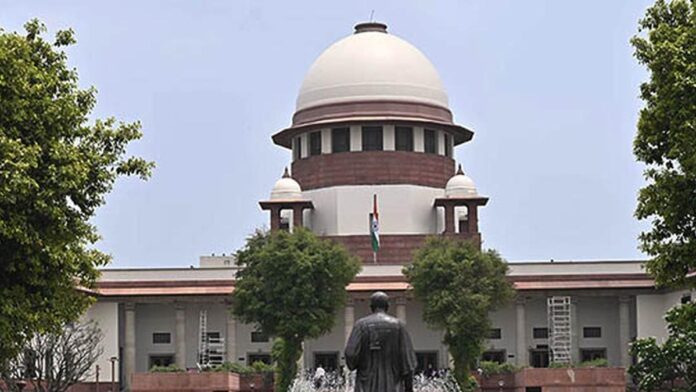
A view of the Supreme Court of India, in New Delhi.
| Photo Credit: SHIV KUMAR PUSHPAKAR
The Supreme Court on Friday (November 22, 2024) said the new criminal laws need to be “given a chance” and citizens have a right to live free of crime.
A Bench headed by Justice Surya Kant made the observation while hearing a petition questioning the validity of provisions in the Bharatiya Nagarik Suraksha Sanhita, 2023 (BNSS) and Bharatiya Nyaya Sanhita, 2023 (BNS) which replaced the Code of Criminal Procedure and the Indian Penal Code. The new laws came into effect from July 1.

The petitioner, Azad Singh Kataria, represented by senior advocate Menaka Guruswamy, argued that provisions in the new penal law, especially the ones dealing with organised crime, removed essential procedural safeguards, which protected citizens against arbitrary arrest and official abuse of rights by the police, under special statutes like the MCOCA.
“An undertrial can be put away in police custody for 60 days! My Lords, can well imagine what would happen to a person who is in police custody for so long… The guidelines framed by the court on arrest and custody in the D.K. Basu case have been violated,” Ms. Guruswamy submitted.
Ms. Guruswamy said the new laws violated the guarantees of “equality before the law and equal protection of the laws to all people” and the due process of law under Articles 14 and 21, respectively, of the Constitution.
The senior lawyers said even two youths held for pickpocketing could be charged under organised crime under the new provisions.
“Organised crime needs to be controlled in the interest of the society. People have a right to live without fear and be free of crime…. Do you not see the violence committed in homes, on the streets, rowdy road rage incidents, criminal gangs emerging suddenly, child abductions, cyber crime… Parliament has given a pan-India law, should it not be given a chance?” Justice Kant asked.
Ms. Guruswamy argued that making a law more stringent had never deterred crime.
“In the United States, nobody dares to jump the red light on roads. They have to face heavy penalty…” Justice Kant observed.
Ms. Guruswamy replied 82% success in convictions in the U.S. for white-collar crimes, in India it was only a meagre 3%.
“The answer is better investigation, forensics, trained police officers and availability of judges…” she submitted.
Published – November 22, 2024 04:55 pm IST
